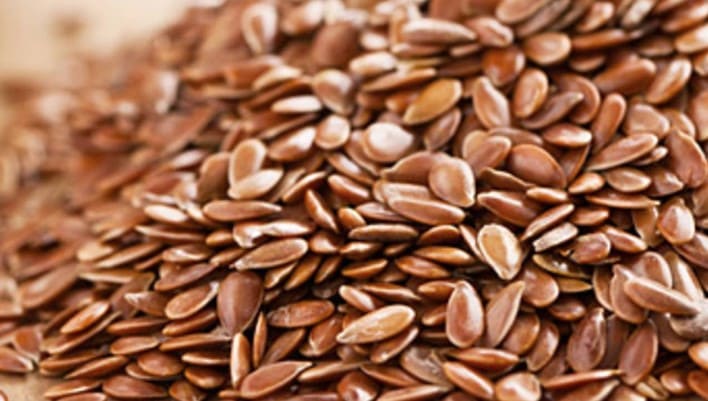There is no question that flaxseed is a healthy food: it provides us with fiber, protein and omega-3 fatty acids. However, flaxseed is not recommended for everyone. We explain when you should better keep your hands off the regional superfood.
The small brown seeds are currently experiencing a boom: Instead of only being found in health food stores, flaxseed can now be bought in every supermarket and they are increasingly used as a topping in muesli or in a trendy breakfast bowl. And rightly so: Flaxseed scores with important omega-3 fatty acids and fiber and is a good source of vegetable protein.
Flaxseeds keep us full for longer, keep our intestinal flora healthy and can even reduce the risk of cardiovascular disease. Also read: 4 reasons why flaxseed is healthy
Flaxseed for intestinal problems?
Flaxseeds are a good digestive aid thanks to the mucilage in the husks. The seeds swell up in the intestines and stimulate digestion. But if you have ever had an intestinal obstruction, you should better avoid flaxseed. The intestine, stomach or esophagus can be narrowed by the blockage.
To be on the safe side, you should also not eat flaxseed if you have an acute inflammation in the gastrointestinal area.
Always drink enough
The golden rule when consuming flaxseed is to drink plenty of it. Without hydration, the swelling flaxseed can stick to the intestines and cause problems. This can lead to an intestinal blockage.
Therefore, stick to the following guideline: You should drink at least 100 milliliters of water or tea per tablespoon of flaxseed.
Guide value: 15 grams of flaxseed per meal
Like bitter apricot kernels and bitter almonds, linseed naturally contains so-called cyanogenic glycosides. Hydrocyanic acid is released from these during chewing and digestion.
In itself, the hydrocyanic acid in flaxseed is not that bad: the human body can break down certain amounts of hydrocyanic acid. In addition, the Federal Institute for Risk Assessment (BfR) has determined that less hydrocyanic acid enters the blood from flaxseed than from apricot kernels.
According to the experts, there is no health risk for adults who eat no more than 15 grams of flaxseed per meal for three meals a day. This corresponds to a maximum of two tablespoons of flaxseed.
Prussic acid could be dangerous for children
In children, on the other hand, the health risk has not been clarified. That is why we also complained in the test if there was no reference to a maximum intake and/or the information that the flaxseed is not at all suitable for small children.
The good news: When flaxseed is heated, hydrocyanic acid evaporates. Cooked flaxseeds or baked in bread, children can also eat the healthy seeds.



